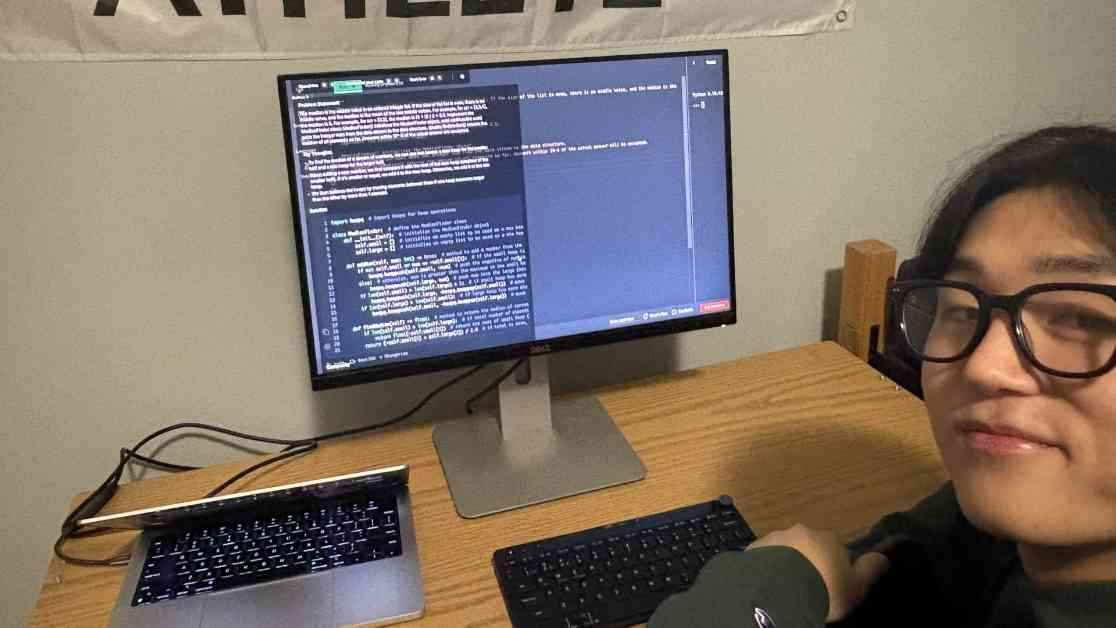As a young computer science student, Chungin “Roy” Lee was faced with a common dilemma when preparing for technical job interviews—Leetcode. Leetcode, a program used by tech companies to evaluate software engineers, demands hours of algorithmic problem-solving, often unrelated to actual job requirements. Frustrated by the inefficiency of this process, Lee decided to take matters into his own hands and revolutionize the way software engineers approach technical interviews.
A 21-year-old student at Columbia University, Lee found himself at the intersection of technology and recruitment. After receiving internship offers from major tech companies like Amazon, Meta, and TikTok, Lee opted to forge his own path. Instead of joining these corporate giants, he embarked on a mission to disrupt the status quo by creating Interview Coder—a startup that leverages artificial intelligence to assist software engineers in acing their technical job interviews.
Embracing the evolving landscape of remote job interviews, popularized during the Covid-19 pandemic, Lee recognized the potential for AI to level the playing field for candidates. With the advent of generative AI tools like OpenAI’s ChatGPT, the boundaries of traditional interviews began to blur. Tech companies, including Google, now rely on AI to write more than 25% of their new code, ushering in a new era of recruitment where technical prowess is augmented by machine intelligence.
The Rise of AI Cheating in Technical Interviews
The proliferation of AI cheating tools has posed a unique challenge for hiring managers and recruiters. As software engineers harness the power of generative AI models to provide real-time coding solutions during interviews, the line between genuine skill and artificial assistance becomes increasingly blurred. Interview Coder, Lee’s brainchild, offers candidates a discreet advantage by equipping them with AI-powered responses and explanations, all while remaining undetectable to interviewers.
Despite the convenience and efficiency afforded by AI cheating tools, the practice has not gone unnoticed by hiring managers. Recruiters have reported frustrations with discerning between authentic candidate responses and AI-generated solutions. Subtle cues, such as eye movements, rehearsed answers, and the infamous “Hmm” pause, serve as red flags for interviewers attempting to uncover instances of AI assistance.
Navigating the Ethical Quagmire
While the use of AI in technical interviews continues to evolve, ethical concerns loom large within the tech industry. Employers and recruiters are grappling with the implications of AI cheating on the hiring process, with some companies resorting to reinstating in-person interviews to combat the phenomenon. Deloitte, for instance, has reverted to on-site interviews for its U.K. graduate program, emphasizing the importance of genuine candidate interactions in the evaluation process.
As software engineers navigate the complex landscape of technical recruitment, platforms like Leetcode Wizard and Interview Coder offer AI-powered solutions to streamline the interview preparation process. Isabel De Vries, head of marketing at Leetcode Wizard, underscores the necessity for a more nuanced approach to technical assessments—one that aligns with the daily realities of engineering work and minimizes the reliance on algorithmic puzzles.
The Future of AI in Technical Recruitment
Looking ahead, the trajectory of technical recruitment appears increasingly intertwined with AI integration. With more than half of companies currently utilizing AI in the hiring process, and a projected 68% adoption rate by the end of 2025, the role of machine intelligence in candidate evaluation is set to expand exponentially. While AI cheating tools like Interview Coder and Leetcode Wizard offer a temporary solution to the shortcomings of traditional technical interviews, the tech industry must grapple with the broader implications of their widespread adoption.
In a landscape where adaptability is key, the onus falls on companies to embrace innovative solutions that align with the evolving expectations of software engineers. Lee’s disruptive approach to technical interview preparation serves as a poignant reminder of the need for agility and responsiveness in the face of technological advancements. As the boundaries between human ingenuity and artificial intelligence continue to blur, the tech industry stands at a crossroads, poised to redefine the future of technical recruitment.

























